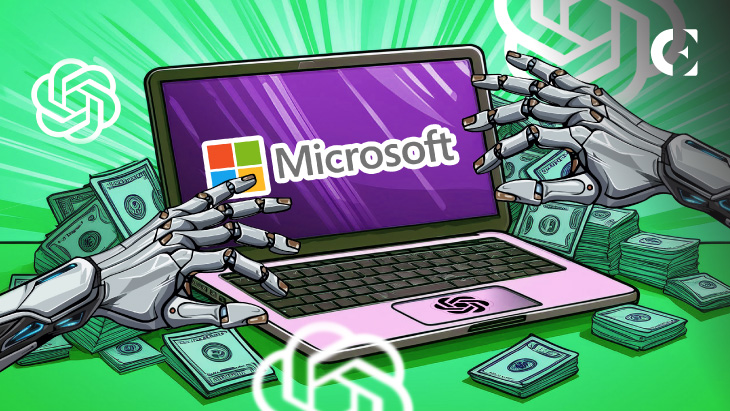- OpenAI may face funding challenges, leading to potential Microsoft acquisition by 2027.
- Investor interest in AI could decline, limiting capital for startups like OpenAI.
- Microsoft’s strategic interest may drive full acquisition if OpenAI can’t sustain innovation.
OpenAI may see a major ownership change within three years. CCS Insight predicts the company might not be able to raise enough funding to keep growing, which could force a sale to Microsoft by 2027.
This prediction comes from changing investor objectives and the increasing costs of being a leader in the AI space. The forecast suggests that, as the AI hype dies down, companies like OpenAI may have to seek support from larger firms to survive.
Ben Wood, the chief analyst at CCS Insight, expects a financial correction in the AI sector, which could make it harder for startups like OpenAI to raise the capital they need for innovation. He said that as the buzz fades, investor interest may shift away from AI, reducing funding opportunities for these companies.
Microsoft’s Potential Takeover of OpenAI
Microsoft, which has a long-term partnership with OpenAI, could be the most likely buyer to acquire the company if it runs into financial trouble. Wood said that Microsoft might want to take full control of OpenAI to help reach its own AI ambitions.
While a complete acquisition hasn’t been confirmed, Wood believes that the tech giant may step in if funding shortages stop OpenAI from innovating.
This is not the first time Microsoft has been linked to an OpenAI acquisition. In November 2023, OpenAI had brief internal turmoil when CEO Sam Altman briefly left the company and joined Microsoft, returning after employee protests.
Read also: Sam Altman’s OpenAI Seeks Trillions of Dollars Over New Tech Initiative
CCS Insight’s analysis also shows how competition within the AI sector is heating up, making things even tougher for startups like OpenAI.
Meanwhile, Nvidia has benefited from the increased demand for AI hardware, mainly through its CUDA framework. However, Wood believes this dominance may fade over time as other competitors appear and the market becomes more balanced.
Disclaimer: The information presented in this article is for informational and educational purposes only. The article does not constitute financial advice or advice of any kind. Coin Edition is not responsible for any losses incurred as a result of the utilization of content, products, or services mentioned. Readers are advised to exercise caution before taking any action related to the company.







